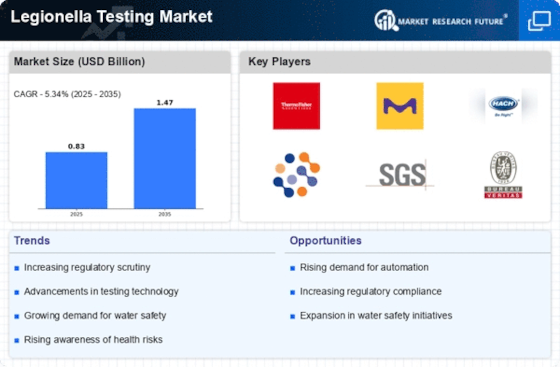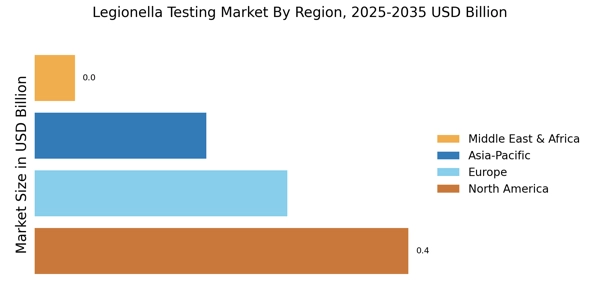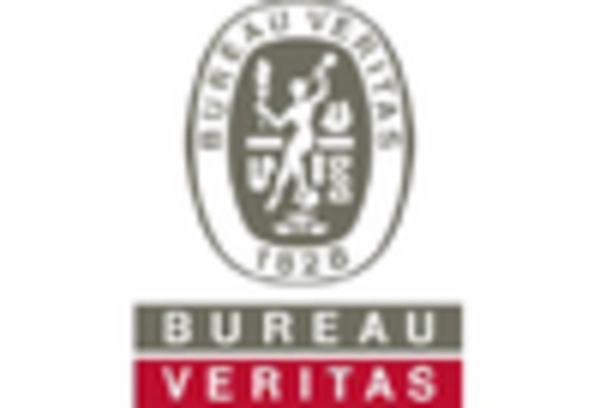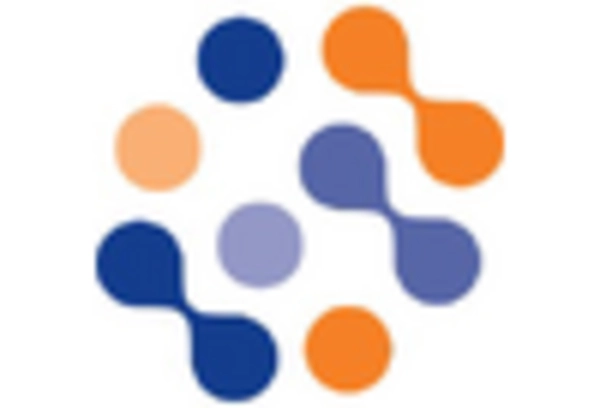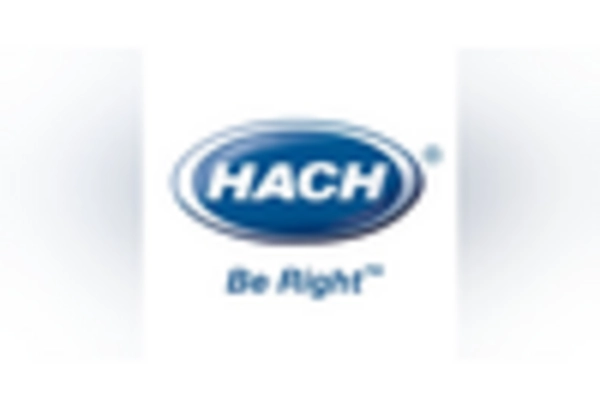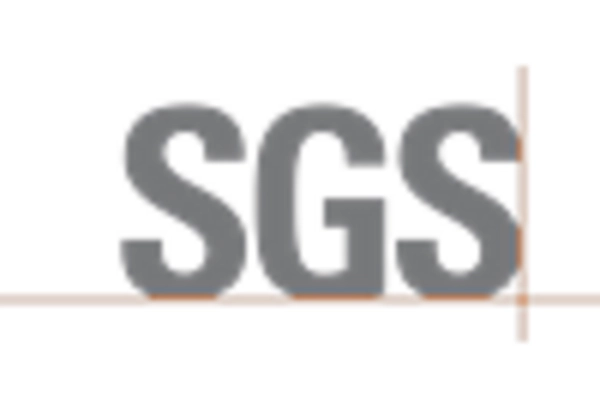Rising Public Health Concerns
Public health concerns regarding waterborne diseases are driving the Legionella Testing Market. With increasing awareness of the health risks associated with Legionella bacteria, there is a growing emphasis on preventive measures in both residential and commercial settings. Reports indicate that Legionnaires disease cases have been on the rise, prompting health authorities to advocate for regular testing of water systems. This heightened awareness is likely to lead to increased investments in Legionella testing services, as organizations aim to safeguard public health and comply with emerging health guidelines. Consequently, the market is poised for growth as stakeholders recognize the importance of proactive testing in mitigating health risks.
Increased Regulatory Compliance
The Legionella Testing Market is experiencing heightened regulatory compliance requirements across various sectors, particularly in healthcare and hospitality. Governments and health organizations are implementing stringent guidelines to ensure water safety and prevent outbreaks of Legionnaires disease. For instance, regulations may mandate routine testing of water systems in large buildings, which drives demand for Legionella testing services. The market is projected to grow as organizations seek to comply with these regulations, with estimates suggesting a compound annual growth rate of around 8% over the next few years. This regulatory landscape compels facilities to invest in reliable testing solutions, thereby expanding the Legionella Testing Market.
Technological Innovations in Testing
Technological advancements are significantly influencing the Legionella Testing Market. Innovations such as rapid testing methods and automated sampling systems are enhancing the efficiency and accuracy of Legionella detection. For example, the introduction of PCR-based testing techniques allows for quicker results, which is crucial for timely interventions. The market is likely to see an increase in the adoption of these advanced technologies, as they not only improve testing turnaround times but also reduce labor costs associated with traditional methods. As organizations prioritize effective water management strategies, the demand for innovative testing solutions is expected to rise, further propelling the Legionella Testing Market.
Increased Investment in Infrastructure
Increased investment in infrastructure, particularly in aging water systems, is significantly impacting the Legionella Testing Market. Many regions are facing challenges related to outdated plumbing and water distribution systems, which can harbor Legionella bacteria. As governments and private entities allocate funds for infrastructure upgrades, there is a growing need for effective testing solutions to ensure water safety. This investment trend is likely to drive demand for Legionella testing services, as stakeholders seek to mitigate risks associated with legacy systems. The market may witness substantial growth as infrastructure improvements necessitate enhanced testing protocols to protect public health and comply with regulatory standards.
Expansion of Water Management Practices
The expansion of water management practices across various industries is a key driver for the Legionella Testing Market. As organizations increasingly recognize the importance of maintaining water quality, there is a corresponding rise in the implementation of comprehensive water management programs. These programs often include regular Legionella testing as a critical component to ensure safe water systems. Industries such as healthcare, hospitality, and manufacturing are particularly focused on enhancing their water management protocols, which is likely to result in a surge in demand for Legionella testing services. This trend indicates a robust growth trajectory for the Legionella Testing Market as more entities prioritize water safety.


